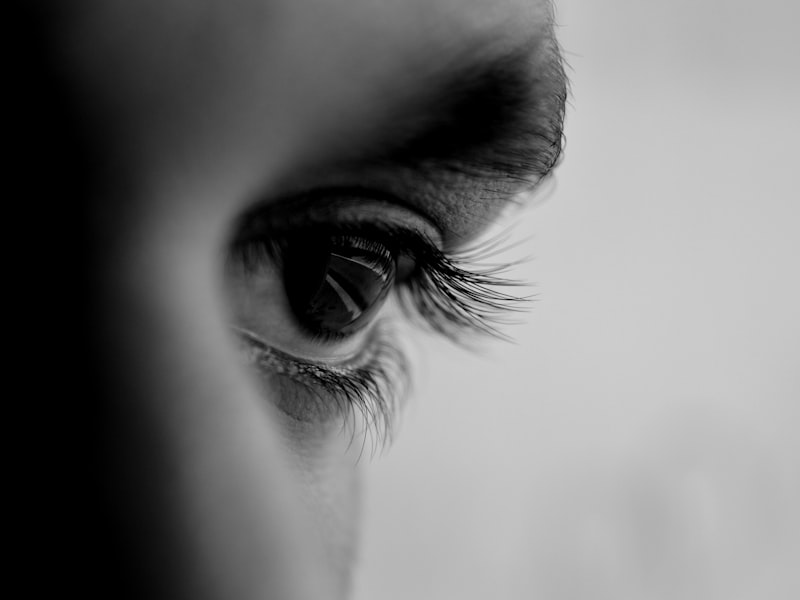5 interesting facts about What triggers binge eating?

What are some of the psychological aspects that can contribute to binge eating disorder?
Binge eating condition (BED) is a severe, life-threatening eating condition defined by recurrent episodes of binge eating. Binge consuming episodes are related to a sense of loss of distress, humiliation, and control. Binge consuming disorder is the most typical eating condition in the United States, affecting 3.5% of ladies, 2.0% of men, 1.6% of teenagers, and 0.8% of kids.
There are a number of psychological aspects that can contribute to the advancement of BED, consisting of:
1. Genetic elements: There is proof to suggest that binge eating condition has a genetic element. Research studies of twins have revealed that if one twin has BED, the other twin is more most likely to develop the disorder as well.
2. Mental elements: People with BED frequently have a history of mental issues, such as depression, anxiety, and compound abuse. They might also have a history of trauma, such as sexual or physical abuse.
3. Social aspects: People with BED might come from households where there are problems with food and eating, such as a history of dieting or disordered eating. They might likewise have trouble dealing with tension and may rely on food as a method to manage their feelings.
4. Biological elements: There is evidence to recommend that there are distinctions in the brain structure and function of individuals with BED. These differences may make individuals with BED more susceptible to establishing the condition.
Please seek professional help if you or someone you know is having a hard time with BED. BED is a major disorder that can cause substantial physical and psychological issues.
What are some of the physical aspects that can contribute to binge consuming disorder?
Binge consuming condition (BED) is a major, dangerous eating disorder identified by persistent episodes of binge eating. Binge eating episodes are connected with a sense of loss of control over consuming and are frequently followed by feelings of guilt, distress, and pity. Binge eating condition is the most common consuming disorder in the United States, impacting an approximated 3.5% of ladies and 2% of guys.
There are a number of physical factors that can contribute to the advancement of binge eating disorder. Dieting is frequently a trigger for binge eating episodes, as people might limit their food consumption in an attempt to lose weight, just to later binge consume in response to the appetite and yearnings that result from dieting.
Third, individuals with BED are more most likely to have a family history of consuming conditions. 4th, individuals with BED are more most likely to have a history of injury or abuse.
People with BED are more most likely to have a history of psychiatric conditions, such as stress and anxiety, compound, or anxiety abuse. This is likely due to the reality that individuals with BED often utilize food as a way to manage the unfavorable feelings that result from these disorders.
Please look for expert help if you or somebody you understand is having a hard time with binge eating disorder. Binge consuming disorder is a serious, deadly condition that requires treatment from a certified mental health professional.
What are a few of the ecological elements that can add to binge eating disorder?
There are numerous ecological elements that can add to binge consuming condition. A few of the most typical consist of tension, anxiety, depression, and an absence of assistance.
Binge eating condition is typically triggered by a difficult occasion or a duration of emotional turmoil. hop over to this web-site This can be anything from a major life modification such as a divorce or the death of a loved one, to daily stressors such as work or financial issues. Anxiety and depression are also typical triggers for binge eating disorder. People who struggle with these conditions might rely on food as a method to handle their feelings of stress and anxiety or depression.
An absence of support can also contribute to binge consuming disorder. Individuals who do not have a strong support system of friends and family might turn to food as a method to handle their loneliness or sensations of seclusion.
It is essential to seek professional help if you are struggling with binge eating disorder. There are many treatment options available that can assist you conquer this condition and live a healthy, delighted life.
What are a few of the effects of binge eating condition?
Binge eating condition (BED) is an eating condition characterized by episodes of binge eating followed by a feeling of regret or shame. Binge eating episodes are generally characterized by consuming an extreme amount of food in a brief duration of time, feeling out of control throughout the episode, and sensation guilty or ashamed later on.
Binge eating disorder is related to a number of unfavorable effects, both mental and physical. Physically, BED is associated with obesity, hypertension, type 2 diabetes, and other health problems. Psychologically, BED is related to low self-confidence, depression, anxiety, and other psychological health problems.
Binge consuming condition can have a considerable influence on an individual's quality of life. People with BED frequently miss work or school due to their disorder, and they may have trouble maintaining relationships. Binge eating disorder can likewise cause financial issues, as people may invest a great deal of money on food or might be unable to work due to their condition.
If you or somebody you know is having problem with binge eating condition, it is essential to look for expert assistance. Binge consuming condition is a serious condition that can have an unfavorable influence on a person's psychological and physical health. With treatment, nevertheless, people with BED can learn to manage their disorder and live a healthy and satisfying life.
What are a few of the psychological elements that can add to binge consuming disorder?
Binge consuming disorder (BED) is a severe, deadly eating condition identified by recurrent episodes of binge consuming. Binge eating episodes are associated with a sense of loss of control over eating, and are followed by feelings of guilt, embarassment, and distress. Binge consuming condition is the most typical eating condition in the United States, and is approximated to impact 3.5% of ladies and 2% of males.
There are a number of psychological aspects that can contribute to the advancement of BED, including:
1. Emotional distress: Individuals with BED frequently turn to food as a way to deal with unfavorable emotions such as anxiety, sadness, or dullness. Binge eating provides a short-term sense of relief from these negative emotions, but eventually leads to sensations of regret and embarassment.
2. Body image frustration: People with BED typically have an unfavorable body image and are disappointed with their weight and appearance. This frustration can add to the advancement of BED, as individuals may use binge eating as a way to handle their negative body image.
3. Perfectionism: People with BED frequently have perfectionistic tendencies, which can add to the development of the condition. Perfectionism can cause impractical expectations and a worry of failure, which can activate binge eating episodes.
4. impulsivity: People with BED often have trouble managing their impulses, which can lead to impulsive behaviors such as binge consuming.
5. Family history: Individuals with a household history of consuming disorders or other mental health conditions are at increased threat for establishing BED.
6. Terrible experiences: Individuals who have experienced injury, such as sexual abuse or other types of abuse, are at increased risk for developing BED.
If you or someone you know is battling with BED, please seek professional assistance. Binge consuming disorder is a major, lethal condition that needs treatment.
